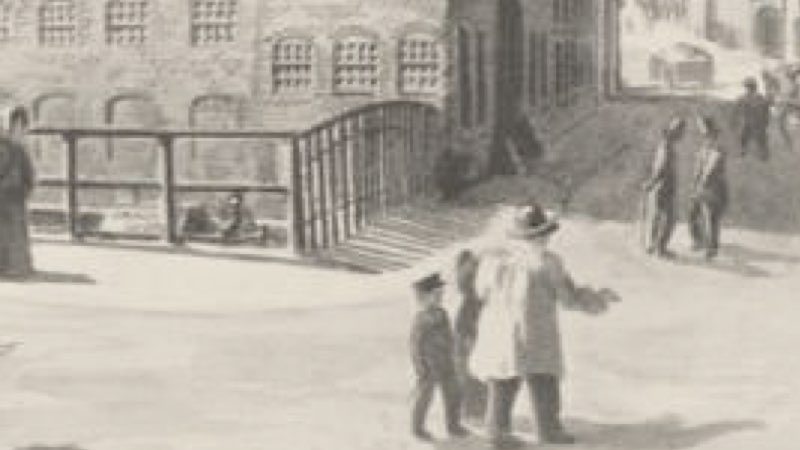
The Life And Death Of George Isbell
Gospel Standard 1860:
Died. At Bath, on March 6th, aged 45, deeply regretted by his attached congregation, MR. G. S. B. Isbell, minister of the gospel at Bethesda Chapel, Bath, after an illness of about four weeks. On Lord’s Day evening, February 5th, he spoke from the words, “Behold the Lamb of God,” with much unction, but with evident difficulty from illness. He went from the pulpit to his bed-room, which he never after left. Ulceration of the tongue and throat set in, and increased till danger was anticipated. On Lord’s Day evening, March 4th, the bowels were attacked, which ended in mortification. His agony was great. He said, “The great struggle is now begun.” Large doses of opium, by the advice of the medical attendant, were administered, and he was in a state of delirium the whole of that night.
His mourning widow adds the following account: He recovered his mind about three o’clock on Monday. I was wiping his dear face with a damp cloth, when he opened his eyes, and, through mercy, knew me. He put out both his hands, drew me down to kiss me, spoke a few comforting words to me, which I was too thankful to hear, and said, “This is death.” A Christian friend asked if the Lord granted his presence? He replied, “Yes, always present, never absent.” The medical attendant coming in, inquired how he felt. “Well in Christ,” was his answer. He then turned to me and said, “He is full of Christ; I shall order nothing to cloud his mind.” My friend Miss L. came to his bed-side; he knew her, pressed her hand, smiled, and said, “Glad, glad.” I asked, before her and an other friend, “Is Jesus precious, dear George?” He said, “He is now my only support.” He seemed in continual prayer. Occasional sweet words we gathered from him, such as “love, blood, Jesus, faith, mercy; O God, who nearest and answerest prayer; pray—pray for her,”—looking at me. An hour before he died, his voice was so sunk and hoarse from the nature of his disease that he could be but imperfectly heard, though he made great efforts to make himself understood. He gradually sank, and not a cloud passed over his beaming face until his spirit calmly and peaceably passed away.
The following is a short outline of his experience as furnished to us by his surviving partner: “He was a gay, thoughtless young man till arrested in the year 1836, when, I believe, there could not have been a greater display of the sovereignty of God, for when he stopped him it was seen and observed by all men. He was then reading for the church, with the promise of a living. But previous to that he was about joining Major Napier, as a volunteer, in the army in Spain, and was in London waiting final orders, when the above offer was made to him. Just at this time the late Mr. George, rector of Rents-town, Ireland, was preaching at Stonehouse, when he went, as it is called, carnally, to hear him. Conviction was then and there fastened on his conscience, and he always viewed Mr. George as the instrument in God’s hands of his conversion. He went through a good deal of soul trouble, but was set at liberty whilst walking in the fields in great agony of mind; and soon afterwards began to preach occasionally, first at Mount Zion, Devonport, and Corpus Christi, his late chapel at Stonehouse. In July, 1838, he became the pastor of the Independent church at Stoke, near Devonport; but in April, 1839, he was led into the ordinance of baptism, broke up communion with the church, and was baptized. At the close of the year 1841 he formed a church at Stoke Chapel on strict Baptist principles, with many to whom his ministry had been blessed, and firmly held those principles to the day of his death. For many years he preached for three months alternately at Trinity Chapel, Leicester, and Stoke Chapel, and afterwards at Stonehouse, and was much esteemed and loved at both places, especially by those to whom his ministry had been blessed. Feeling the inconvenience and other trying circumstances attending having two churches and congregations at so wide a distance, and believing there was an opening at Bath for a more fixed ministry, he settled at Bethesda Chapel, Bath, where he labored, with sinking health, but much acceptance, for the last two years.”
George Isbell (1815-1860) was a Strict and Particular Baptist preacher. In July 1838, he was appointed pastor for the Independent church meeting at Stoke, Devonport; in 1841 he organized a church at Stoke Chapel on Strict Baptist principles; in 1858 he was appointed pastor of the church meeting at Bethesda Chapel, Bath.



